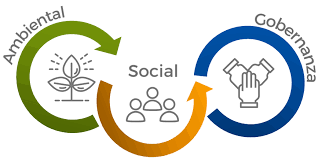Profitability, closely linked to good social and environmental practices.
13/02/2023
Profitability in the real estate business is increasingly linked to good practices in the area of social responsibility. Implementing improvements in the areas of sustainability, social sensitivity and good corporate governance (ESG) clearly has an impact on the attractiveness of properties, as well as their value.
In the context of building construction, ESG considerations can include factors such as the building’s energy efficiency and carbon footprint, the materials used in construction, the building’s accessibility for people of diversity, and the company’s labor practices and governance structure. Incorporating ESG considerations into building design and construction can help promote sustainable development and reduce negative impacts on the environment and society.
Aware that it cannot be otherwise and that we are facing a very obvious reality, at B Capital Partnes we are committed to responsible investment management. We have been working with our clients for some time now so that the buildings we manage can obtain a good ESG rating. Our in-house facility management team is a partner at Breeam.
Today there are different ways to determine the level of sustainability of a building. There are different types of certificates such as BREEAM, LEED, DGNB, etc., as well as ratings such as GRESB, which allow us to know how sustainable a building is and its impact on our economy regardless of whether it is owned by a company or an individual.
The Breeam Building Research Establishment’s Environmental Assessment Method certificate allows us to know the relationship of a building with the environment.
This certificate was developed by the BRE Global organization in the United Kingdom and began to be developed in 1988, but it was not until the 1990s that it came into use. Initially, the Breeam certificate was used for commercial and residential properties. Over time its use has been extended to new types of buildings.

